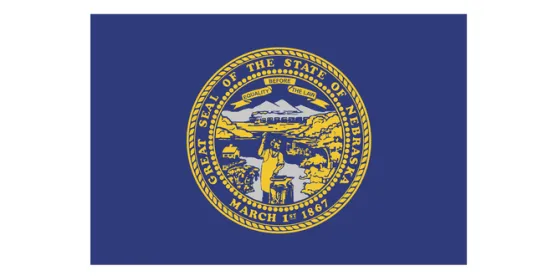On Friday, the Nebraska Supreme Court issued its opinions in Fair v. Continental Resources, No. S-21-074, and Nieveen v. TAX 106, No. S-21-364, following remand from the United States Supreme Court in the wake of Tyler v. Hennepin County, No. 22-166 (May 25, 2023). Although the two state court opinions focus on applying Tyler to Nebraska tax sales, the case will potentially impact tax lien foreclosure systems around the country. Most importantly, the opinions impose an additional risk to tax-lien investors: the possibility that they could be liable to homeowners for “just compensation” under the Takings Clause.[1]
Overview of Tyler v. Hennepin County
In 2023, the United States Supreme Court ruled in Tyler that the forfeiture of a Minnesota property for nonpayment of taxes resulted in a governmental taking without just compensation because the forced collection recovered more than what was owed to the government—to Caeser. The Supreme Court did not address the question of what amount of just compensation had to be paid in that case. It also did not address who had to pay that just compensation because the only party involved in the unconstitutional taking was the county government.
Shortly after the Supreme Court issued its opinion in Tyler, the Court also summarily addressed related issues in two cases from the Supreme Court of Nebraska: Fair v. Cont'l Res., No. 22-160, 143 S. Ct. 2580 (2023), and Nieveen v. Tax 106, No. 22-237, 143 S.Ct. 2580 (2023). The Supreme Court remanded the two cases for reconsideration in light of its opinion in Tyler.
Nebraska’s Two Opinions
After supplemental briefing and oral argument in February, the Nebraska Supreme Court issued its opinion in both cases Friday. (The opinion in Nieveen largely parrots the holdings in Fair.) Relevant to the tax-lien industry is the Nebraska Supreme Court’s holding that the tax-deed holders were liable to pay just compensation to the defaulting taxpayers after the issuance of a tax deed.
The opinion starts with an overview of Nebraska’s delinquent-tax collection system used in 2015 when the subject tax sales occurred. During that time, tax-lien bidders could offer to pay the back taxes, penalties, and costs in exchange for a tax certificate. That certificate earned 14% interest for three years during which the delinquent taxpayer could redeem the property. After that statutory redemption period, the tax-certificate holder could either judicially foreclose the property and require it be sold at public auction, or instead apply to the county treasurer for a tax deed after providing statutorily notice to interested parties.
The first option—judicial foreclosure—includes a procedure by which excess value in the property can be returned to the defaulting taxpayer in the form of surplus proceeds. The tax-certificate holders in Fair and Nieveen chose the second—application for a tax deed—which meant that there was no mechanism for generating, much less returning, surplus proceeds.
This choice turned out to expose the tax deed holders to significant risk. The Court held that the tax-certificate holders who converted their certificates into tax deeds could be held liable for paying just compensation if the property’s value exceeds the amount of unpaid taxes.
Reasons for Holding the Investors Liable
The Court addressed two arguments for imposing liability on the tax-deed holders: (a) private parties performing a public function; and (b) private parties jointly acting with government entities. The Nebraska Supreme Court agreed with the second argument that the tax-deed holders were jointly working with the government actors, making them liable for the taking. The Court reasoned that when a tax-certificate holder obtains a tax deed, they effectively “exercised a privilege created by the State in order to seize property.” The exercise of this privilege resulted in a tremendous benefit to the tax-deed holders, and even a windfall in some circumstances. So the Court reasoned that imposing the potential risk for paying just compensation on the tax-certificate holder was appropriate. After all, it was the tax-certificate holder who chose to pursue the deed-application process instead of filing for traditional foreclosure.
Because of this holding, the Court remanded the case to calculate how much the tax-deed holders owed to compensate the defaulting taxpayers for the takings. It did so despite a separate dissenting opinion, which argued that the Court should also remand the question of who should be liable for paying that just compensation. The dissent argued that very little precedent on this issue exists nationwide, so the Court should have remanded that case to make a more reasoned decision on what degree of involvement by the County warranted shifting liability from the tax-deed holders.
Impact on Your Tax-Lien Portfolio
Fair and Nieveen may impose a previously unforeseen risk on tax sale bidders. The good news for the industry is that the opinions do not directly apply outside of Nebraska, though they may be persuasive authority. The cases may also be distinguishable given the parties’ dismissal of the Attorney General as a party early in the proceedings, which precluded consideration of whether the other government actors could be jointly liable to pay the defaulting taxpayers. Industry participants will likely seize on this distinguishing factor and the arguments made in the dissent to dissuade other courts from adopting the opinions’ reasoning.
[1] See our related client alert about the Supreme Court’s opinion in Tyler here, along with our other client alerts discussing how state courts and legislatures are reacting to the opinion here, here, and here.






 />i
/>i
